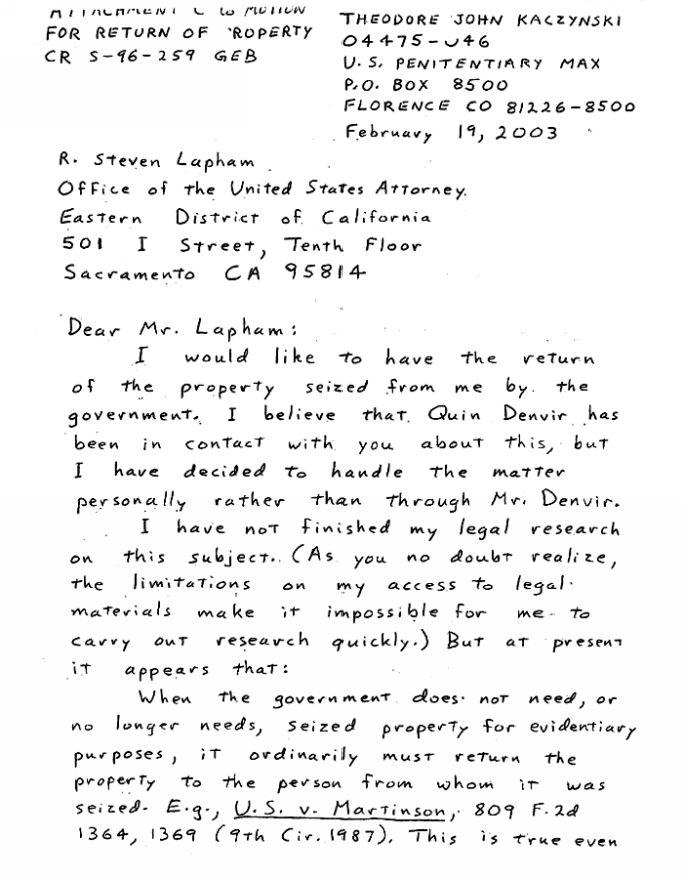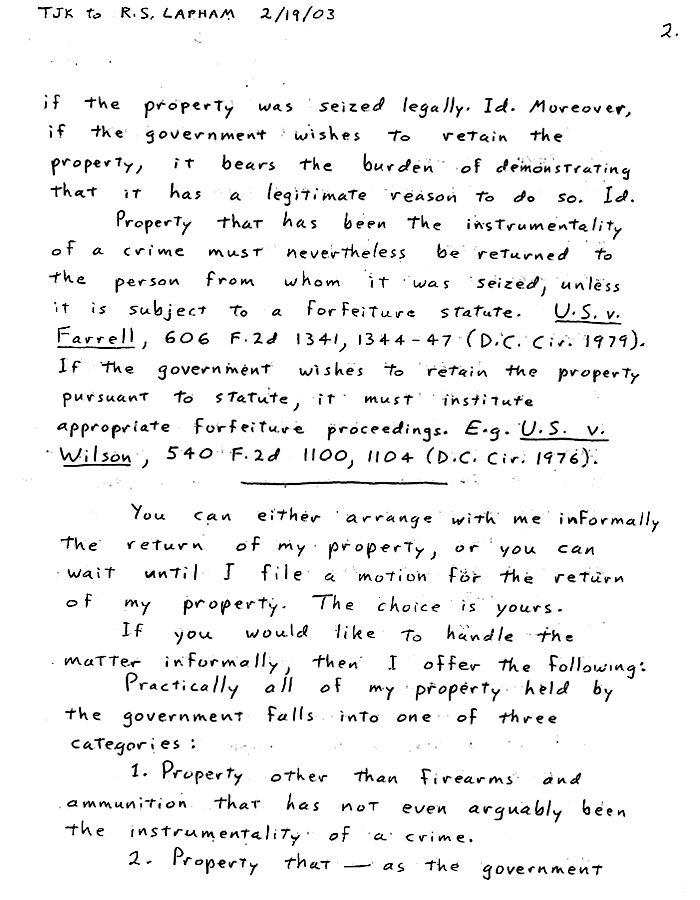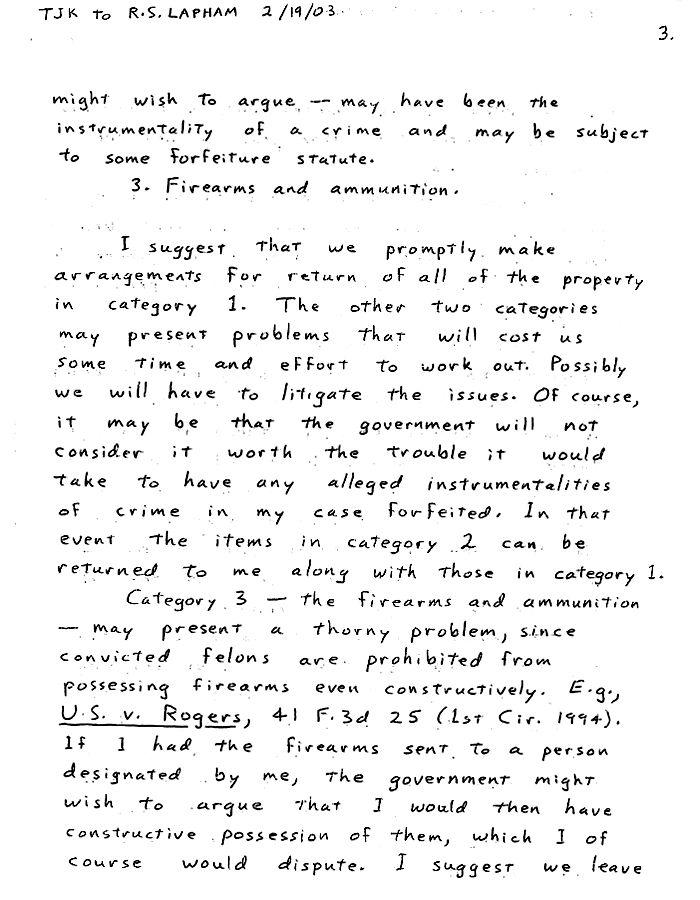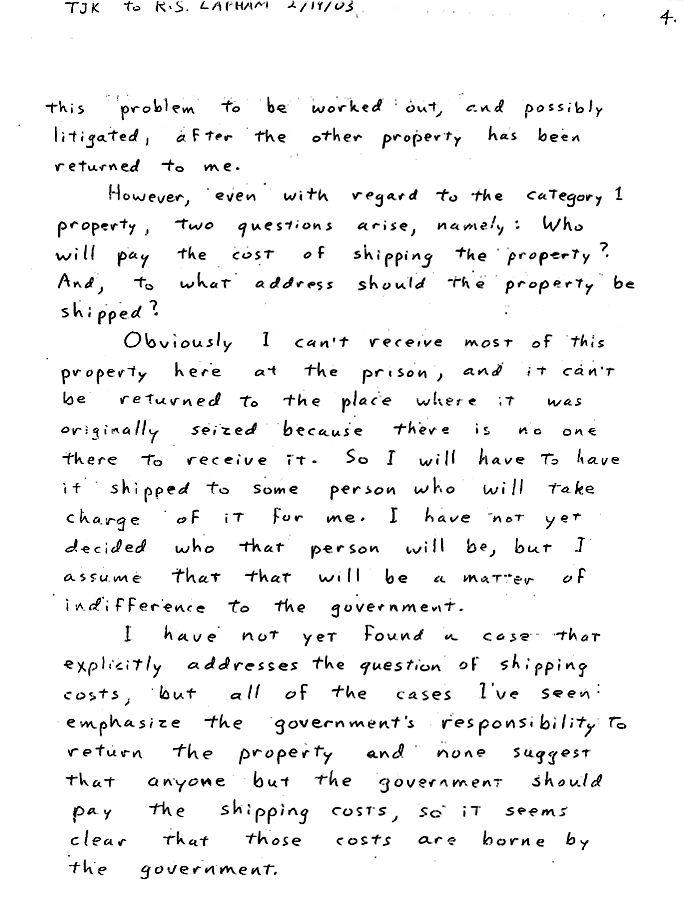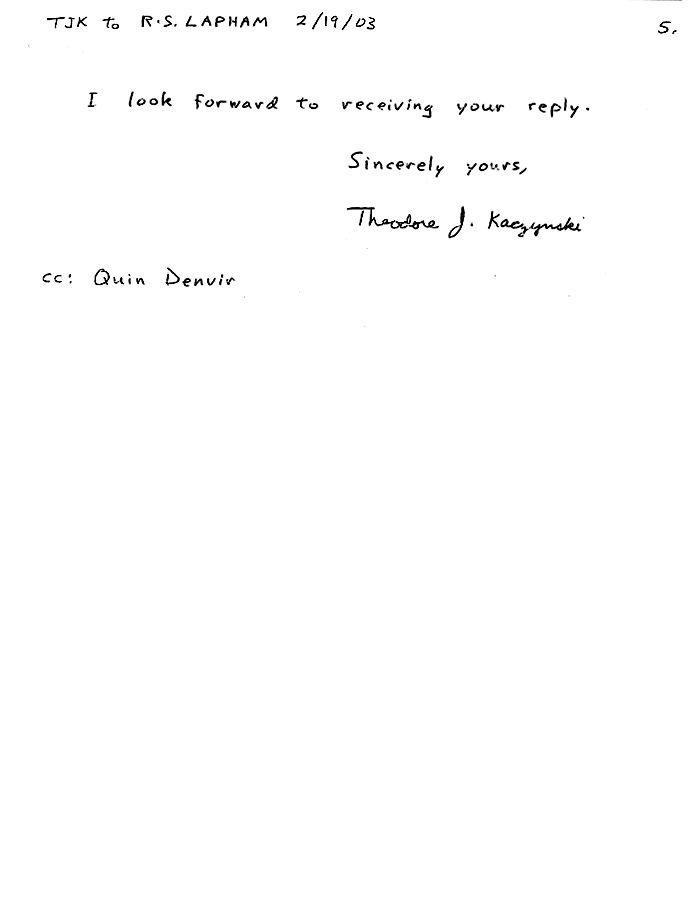Ted Kaczynski’s Letter to Steven Lapham
Attachment to motion
for return of property
CR S-96-259 GEB
Theodore John Kaczynski 04475–046
U.S. Penitentiary Max
P.O. Box 8500
Florence CO 81226–8500
February 19, 2003
R. Steven Lapham
Office of the United States Attorney
Eastern District of California
501 I Street, Tenth Floor
Sacramento CA 95814
Dear Mr. Lapham:
I would like to have the return of the property seized from me by the government. I believe that Quin Denvir has been in contact with you about this, but I have decided to handle the matter personally rather than through Mr. Denvir.
I have not finished my legal research on this subject. (As you no doubt realize, the limitations on my access to legal materials make it impossible for me to carry out research quickly.) But at present it appears that:
When the government does not need, or no longer needs, seized property for evidentiary purposes, it ordinarily must return the property to the person from whom it was seized. E.g., U.S. v. Martinson, 809 F. 2d 1364, 1369 (9th Cir. 1987). This is true even if the property was seized legally. Id. Moreover, if the government wishes to retain the property, it bears the burden of demonstrating that is has a legitimate reason to do so. Id.
Property that has been the instrumentality of a crime must nevertheless be returned to the person from whom it was seized, unless it is subject to a forfeiture statute. U.S. v. Farrell, 606 F. 2d 1341, 1344–47 (D.C. Cir. 1979). If the government wishes to retain the property pursuant to statute, it must institute appropriate forfeiture proceedings. E.g. U.S. v. Wilson, 540 F. 2d 1100, 1104 (D.C. Cir. 1976).
You can either arrange with me informally the return of my property, or you can wait until I file a motion for the return of my property. The choice is yours.
If you would like to handle the matter informally, then I offer the following:
Practically all of my property held by the government falls into one of three categories:
-
Property other than firearms and ammunition that has not even arguably been the instrumentality of a crime.
-
Property that — as the government might wish to argue — may have been the instrumentality of a crime and may be subject to some forfeiture statute.
-
Firearms and ammunition.
I suggest that we promptly make arrangements for return of all of the property in category 1. The other two categories may present problems that will cost us some time and effort to work out. Possibly we will have to litigate the issues. Of course, it may be that the government will not consider it worth the trouble it would take to have any alleged instrumentalities of crime in my case forfeited. In that event the items in category 2 can be returned to me along with those in category 1.
Category 3 — the firearms and ammunition — may present a thorny problem, since convicted felons are prohibited from possessing firearms even constructively. E.g., U.S. v. Rogers, 41 F. 3d 25 (1st Cir. 1994). If I had the firearms sent to a person designated by me, the government might wish to argue that I would then have constructive possession of them, which I of course would dispute. I suggest we leave this problem to be worked out, and possibly litigated, after the other property been returned to me.
However, even with regard to the category 1 property, two questions arise, namely: Who will pay the cost of shipping the property? And, to what address should the property be shipped?
Obviously I can’t receive most of this property here at the prison, and it can’t be returned to the place where it was originally seized because there is no one there to receive it. So I will have to have it shipped to some person who will take charge of it for me. I have not yet decided who that person will be, but I assume that that will be a matter of indifference to the government.
I have not yet found a case that explicitly addresses the question of shipping costs, but all of the cases I’ve seen emphasize the government’s responsibility to return the property and none suggest that anyone but the government should pay the shipping costs, so it seems clear that those costs are borne by the government.
I look forward to receiving your reply.
Sincerely yours,
Theodore J. Kaczynski
cc: Quin Denvir
